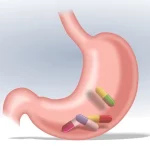Can Antibiotics Make You Tired and Weak?

Research has shown that about 20% of patients who see a family medicine provider complain of fatigue. Fatigue can be described as a generalized weakness (difficulty starting activities), difficulty sustaining activities, difficulty with concentration and memory, or any combination of the above.
While certainly not the only answer, several medications may cause fatigue, drowsiness, or sleepiness. “Many people report tiredness or fatigue as a side effect from their medicines
What is an antibiotic?
Antibiotics are medicines that fight infections caused by bacteria in humans and animals by either killing the bacteria or making it difficult for the bacteria to grow and multiply. Antibiotics have been used for millennia to treat infections, although until the last century or so people did not know the infections were caused by bacteria. Various molds and plant extracts were used to treat infections by some of the earliest civilizations – the ancient Egyptians, for example, applied moldy bread to infected wounds.
Nevertheless, until the 20th century, infections that we now consider straightforward to treat – such as pneumonia and diarrhea – that are caused by bacteria, were the number one cause of human death in the developed world.
Most antibiotics used today are produced in laboratories, but they are often based on compounds scientists have found in nature. Some microbes, for example, produce substances specifically to kill other nearby bacteria in order to gain an advantage when competing for food, water or other limited resources. However, some microbes only produce antibiotics in the laboratory.
How do antibiotics work?
Antibiotics are used to treat bacterial infections. Some are highly specialized and are only effective against certain bacteria. Others, known as broad-spectrum antibiotics, attack a wide range of bacteria, including ones that are beneficial to us.
There are two main ways in which antibiotics target bacteria. They either prevent the reproduction of bacteria or kill the bacteria. The mechanism of action of antimicrobial agents can be further categorized based on the function that is affected by the agents, these generally included the following:
- Inhibition of the cell wall synthesis
- Inhibition of ribosome function
- inhibition of nucleic acid synthesis
- Inhibition of folate metabolism
- Inhibition of cell membrane function.
Can antibiotics make you feel sick and tired?
Yes, some types of antibiotics can cause tiredness even though it is not a common side effect of antibiotic use. Talk to your doctor if you’re concerned that your antibiotic prescription is causing you a level of fatigue that is:
- keeping you from participating in daytime activities
- negatively affecting your performance at work
- affecting your ability to drive safely
Within a few days of starting the prescribed antibiotic, if the fatigue hasn’t gotten better or has worsened, call your doctor. They may want you to come in to determine if your fatigue is a symptom of the infection being treated by the antibiotics or an uncommon side effect of the antibiotic.
List Of Antibiotics That Can Make You Tired
The following antibiotics can most likely cause tiredness, weakness, or fatigue as a side effect:
Amoxicillin: Amoxicillin is a penicillin antibiotic that fights bacteria. Amoxicillin is used to treat many different types of infection caused by bacteria, such as tonsillitis, bronchitis, pneumonia, and infections of the ear, nose, throat, skin, or urinary tract. Tiredness is a common side effect of taking amoxicillin. If you are feeling excessively tired or weak after taking amoxicillin, immediately contact your doctor. It may have affected your nervous system.
Azithromycin: Azithromycin belongs to the class of drugs known as macrolide antibiotics. It works by killing bacteria or preventing their growth. Azithromycin is used to treat many different types of infections caused by bacteria, such as respiratory infections, skin infections, ear infections, eye infections, and sexually transmitted diseases. Azithromycin can sometimes cause unusual tiredness or weakness in people taking the medication.
Ciprofloxacin: Ciprofloxacin is a fluoroquinolone antibiotic used to treat a number of bacterial infections. This includes bone and joint infections, intra-abdominal infections, certain types of infectious diarrhea, respiratory tract infections, skin infections, typhoid fever, and urinary tract infections, among others. According to Mayo Clinic, ciprofloxacin may cause some people to become dizzy, lightheaded, drowsy, or less alert than they are normally. Do not drive or do anything else that could be dangerous until you know how this medicine affects you. If these reactions are especially bothersome, check with your doctor.
Levofloxacin: Levofloxacin, sold under the brand name Levaquin among others, is an antibiotic medication. It is used to treat a number of bacterial infections including acute bacterial sinusitis, pneumonia, H. pylori, urinary tract infections, chronic prostatitis, and some types of gastroenteritis. Taking levofloxacin may worsen muscle weakness in people with myasthenia gravis (a disorder of the nervous system that causes muscle weakness) and cause severe difficulty breathing or death. Tell your doctor if you have myasthenia gravis. Your doctor may tell you not to take levofloxacin.





